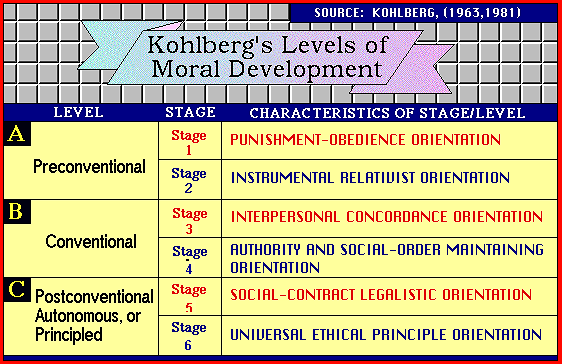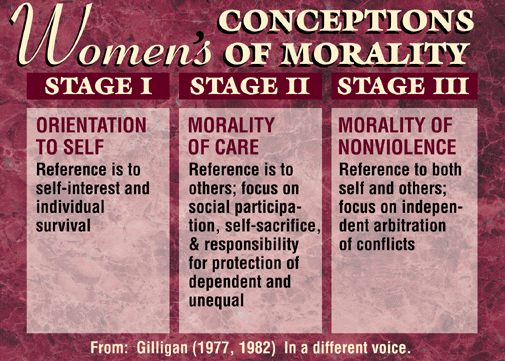>>>>>>>>>>>>>>>>>>>>>>>>>>>>>>>>>>>>>>>>>>>>>>>>>>>>>>>>>>>>>>>
Salam perkhabaran,
Semoga semua sekali berada dalam keadaan sihat walafiat.
Apa pun, perkhabaran ini menandakan sudah 1 tahun berlalu, sejak kita bersama-sama mengadakan program SMART INSAN 2009, di SK Kebun Baru. Ya, 1 tahun lamanya, kali terakhir kita berusrah di Masjid Nurul Iman… pejam-celik, anda masing-masing berada di pelbagai lapangan dalam meniti kehidupan yang sedang belajar dan bersedia untuk masuk ke masyarakat semula sebagai apa sahaja insan yang kalian pilih, dalam sedikit masa lagi. Pada waktu itu, mungkin 3-4 tahun dari sekarang, kalian akan berhasil menjadi seperti yang kalian idamkan. Mungkin akan bergelar Doktor, jurutera, guru, ahli farmasi, juru rawat, technician, akauntan, ahli ekonomi, bisnesman, dan bermacam-macam lagi kemungkinan. Maka, selamat meneruskan usaha dalam menjadi mukmin profesional terbaik satu hari nanti. Biar apa pun lapangan kita, yang penting, khidmat kita akan diperlukan kelak oleh setiap umat Islam di seluruh pelusuk dunia, khususnya di daerah Kuala Langat ini.
Masih ingatkah kalian, makna SMART Insan? akronimnya, Solat, Motivasi, Adab, Rakan, dan Tekun; Ingat? Saya doakan kalian perkukuhkan asas dalam menjadi insan terbaik dengan memperkukuhkan tiang Agama dengan bersolat 5 waktu sehari semalam, seterusnya terus bermotivasi dalam mengejar cita-cita dan impian; Dr HM Tuah kata, soalnya ‘Nak ke Tak Nak’. Seterusnya, menjadi yang terbaik dengan menjaga Adab, dan akhlak sebagai seorang muslim. Asasnya, matlamat harus kena dengan caranya. Seharusnya, punya rakan sebaya, rakan mentor, mahupun rakan protege, dan juga rakan sparring, yang mampu memberikan refleksi cerminan kepada pencapaian kita, dan akhir sekali, konsisten; istiqamah atau Ketekunan dalam mengejar kejayaan; bukan asal berjaya; kita mahukan kejayaan yang gemilang.
Tidak dilupakan juga, kawan-kawan dan adik-adik kita yang masih menuntut di sekolah, dan sudah tentu, yang berada di perkarangan rumah di Kebun Baru ini, juga perlukan kasih sayang dan belaian dari kalian, untuk menjadi contoh, role model, dan teladan kepada mereka. Percayalah, ramai daripada kalian, boleh, mampu dan sedang dijadikan inspirasi oleh adik-adik kita ini, malahan, ada juga kalangan rakan-rakan kita yang dalam diam, admire pada pencapaian kita. Nasihat saya, usah berkecil jiwa, usah malu, dan inilah masanya, kalian menyusun semula langkah untuk kembali berbakti pada tempat kita, asal ada masa yang boleh kalian luangkan; kalau segan secara berseorangan, pilih lah secara berjamaah. Kalau tidak di alam fana, boleh juga di alam maya. Bagi saya, saya akan pilih jalan berjemaah; kerana saya juga seorang yang pemalu! Kata orang, Mahu, tapi malu. Mahu untuk menabur budi, tapi malu untuk memulakannya. Saya bimbang, takut-takut, nanti tidak sempat untuk berbuat bakti, dipanggil pula oleh Illahi... kan sayang... Kalian bagaimana? Mana mungkin berbudi di alam Barzakh?
Untuk pengetahuan kalian, PEPIAS Kuala Langat, dan ABIM Kuala Langat, 2 beradik ini, masih beroperasi secara kecil-kecilan. Nak kata ada, macam tak ada. Nak kata tidak ada, masih ada yang bernyawa. Hidup segan, mati tak mahu; Ngeri pula bunyinya. Kami di sini, perlukan tenaga muda dan berjiwa besar. Ingin melatih kembali generasi Rabbani, generasi Penerus yang akan turut sama punya idealisme perjuangan, dan pada masa yang sama, punya semangat aktivisme dalam mencorakkan masa depan negara. Idealisme harus dipraktiskan secara aktivisme; disisipi dengan spiritualisme yang kukuh melalui tarbiyah usrah, tamrin, dan lain-lain lagi, yang seharusnya membutuhkan suatu tempoh masa yang lama untuk membentuk fikrah yang terbaik dalam suatu kerangka Tauhid, MengEsakan Allah, mengangkat Sunnah Rasulullah, dan menegakkan Syiar Fisabilillah. Rumusan saya setakat ini, masih jauh perjalanan kita. Kayu ukurnya, adakah masyarakat sekitar, sedar akan kehadiran kita?
Saya Muhasabah diri; masih banyak lagi yang tidak dapat dilakukan. Kerdil rasanya bila menginsafi sendiri...
Di kesempatan ini, saya ingin mengajak kembali, rakan-rakan, adik-adik SYABAB NURUL IMAN sekelian, terutama diri saya sendiri, untuk menguatkan kembali asas gerakan kita, pulang ke Pengkalan, perkukuhkan Pengkalan kita apabila keletihan di Lapangan. Sesungguhnya, kita tidak berseorangan, dan percayalah, jalan ini adalah jalan para nubuwah, jalan para sahabat, jalan tabi’ tabiin, jalan orang-orang soleh terdahulu dari kita. Jalan Dakwah, tidak pernah senang; tidak pernah tanpa mehnah, tribulasi, dan cobaan. Kalau pada hari ini, kita sudah leka, dan lupa, maka, benarlah, iman kita sedang keletihan dan kelesuan. Jalan Dakwah perlukan pengorbanan. Ia adalah satu perjuangan hingga akhir nyawa kita. Mungkin sepanjang kalian bekenalan dengan SYABAB, dan mengikuti usrah kecil dan ringkas bersama saya, saya tidak mampu memberikan Motivasi, Iltizam dan Idealisme yang mampu menyerap ke dalam jiwa kalian, Ampun Maaf dipinta atas kelemahan saya. InsyaAllah, kita sama-sama belajar dalam menjadi Khalifah terbaik di atas muka bumi ini.
Aturkan perjalanan fisabilillah kita dengan kemas dan teratur. Hubungi mana-mana rakan-rakan usrah, dan seterusnya bertanyakan “Apa yang saya boleh bantu?” atau “Apa yang boleh saya sumbangkan?” Teringat pesan guru saya dahulu; Jika saki baki masa kita, kita serahkan untuk perjuangan Islam, maka, hasilnya juga adalah saki baki sahaja. Terkesan atas amanat itu, hingga hari ini, saya masih cuba untuk menambah baik Masa Kualiti (Quality Time) bersama dalam Gerakan Dakwah. Kualiti perbincangan usrah akan ditambah baik dengan persediaan tafsir Hadis dan Tafsir Ayat Quran, serta perkembangan isu semasa yang akan dikupas dengan lebih baik, dan bukan berbincang secara sembrono dan sewenang-wenangnya. Isu-isu picisan boleh juga dibincangkan bergantung kepada mad’u yang memerlukan keringanan dalam tasawwur yang berbeza. Prinsipnya, mudahkan mana yang susah, kerana yang utama dalam Usrah adalah kebersamaan, kemudian, baru keilmuan. Soalnya, bilakah kali terakhir anda berusrah? Kesian dengan jiwa rohani kita, kelaparan apabila kita tidak hidangkan santapan rohani untuk jiwa kita.
Semoga warkah Salam yang telah lama tersimpan dalam rasa kerinduan yang amat dalam, melihat dan berjumpa semula dengan adik-adik dan rakan-rakan SYABAB, terasa masih banyak lagi yang mahu dicoretkan. Mujur juga kita berada dalam zaman siber yang segalanya hanya dihujung jari. Yang jauh, kita dekatkan, Yang dekat, kita Serasi-serasikan. Kita serasikan dalam selimut Ukhuwah Fi Llah.
Salam perkhabaran dari Putrajaya.
Salam Ukhuwah,
Salam sayang,
Salam kasih,
Radin Muhd Imaduddin b Radin Abdul Halim







